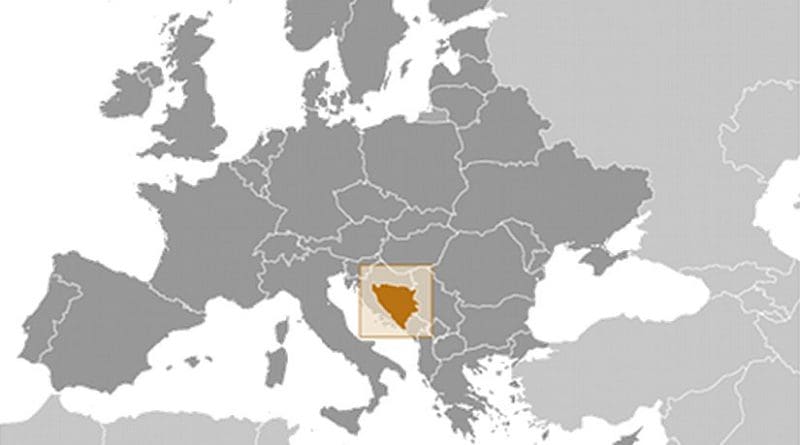Bosnian Mayors Protest As War Criminal Given Mandate
By Eleanor Rose
Mayors from Bosnia’s north-western canton of Una-Sana walked out of an official ceremony in protest when convicted war criminal Fikret Abdic collected his mandate as municipal chief of Velika Kladusa.
The new mayor of Velika Kladusa, Fikret Abdic, who has served a prison sentence for war crimes, ran into controversy on Tuesday when he visited Sarajevo for the first time in 23 years to pick up his mandate certificate.
During the ceremony, as he collected his mandate, some applauded, but other mayors from the Una-Sana Canton, in which Velika Kladusa lies and where Abdic committed his crimes, walked out.
Abdic, who spent about ten years in prison after being convicted in Croatia for war crimes against Bosniaks, won the mayoralty in the small north-western municipality of Velika Kladusa in local elections on October 2, with 48 per cent of the vote.
He was one of the last of the new mayors to arrive in Parliament for Tuesday’s official ceremony, held by the Central Election Commission in Sarajevo’s parliament building, where a large press corps jostled to speak to him.
Abdic commented briefly to say he would make a great mayor, and that he would soon be promoting a new book he had written.
After that, he said, he would be open to discussion, but said: “I don’t think there will be any questions the book won’t answer.”
The mayor of Kljuc, Nedzad Zukanovic, told Sarajevo-based news site Klix.ba that he walked out of the ceremony because he wanted to send a clear message that those convicted of war crimes should not be elected mayor.
“The law must be changed so that we don’t repeat the same situation next year,” he said, adding that he “did not want to sit in a room with war criminals”.
The mayor of Bosanska Krupa, Armin Halitovic, meanwhile told TV station N1 that Una-Sana Canton mayors had agreed together to stage the protest and that he “did not know how the relations with Velika Kladusa will be in the coming period”.
76-year-old Abdic, who was released from jail in 2012, set himself in opposition to Sarajevo’s Bosniak government during the war of 1992 to 1995 by leading a separatist statelet called the Autonomous Province of Western Bosnia.
While leading the breakaway statelet, Abdic fought against fellow Bosniaks who were loyal to the Sarajevo government, cooperated with Serb and Croat forces, and set up prison camps where war crimes were committed against captured Bosnian Army soldiers who were held there.
Before the war however, Abdic was an executive at Agrokomerc, whose headquarters were in Velika Kladusa and which employed 13,000 people, making it one of the most successful agricultural firms in the former Yugoslavia and winning him strong backing locally.
Outside the parliament building on Tuesday, Sarajevans held mixed views on Abdic’s presence in the city.
Dzenan Uzicanin, a 24-year-old student, told BIRN his visit was “bad for our country and bad for Sarajevo,” adding that Abdic’s conviction for war crimes should stop him being a mayor.
“I don’t think it’s bad for him at all, though. I think he’s enjoying it,” he added.
On the other hand, Ivana Sardic, a 35-year-old civil servant, said it seemed like business as usual to her.
“It’s always like that,” she said, saying she believed all politicians created ethnic narratives when they wanted to be elected, and that they all behaved in the same way.
“One day [for example] they say one thing about Republika Srpska, the next they are all agreeing together on something,” she said.

